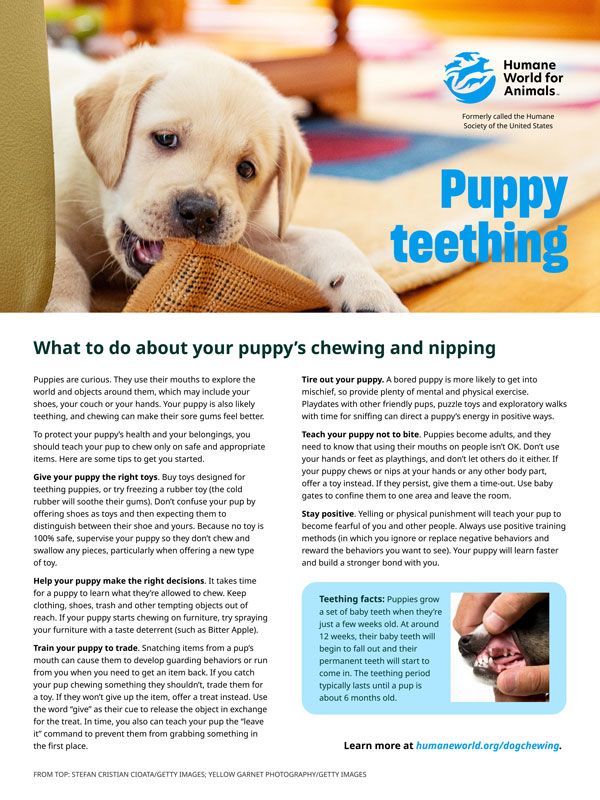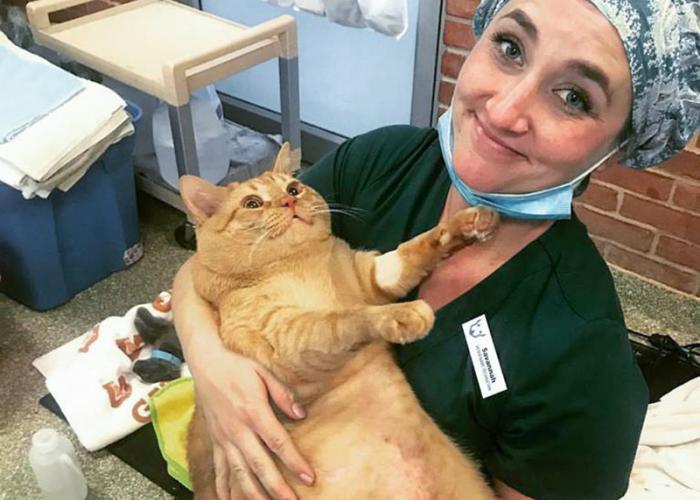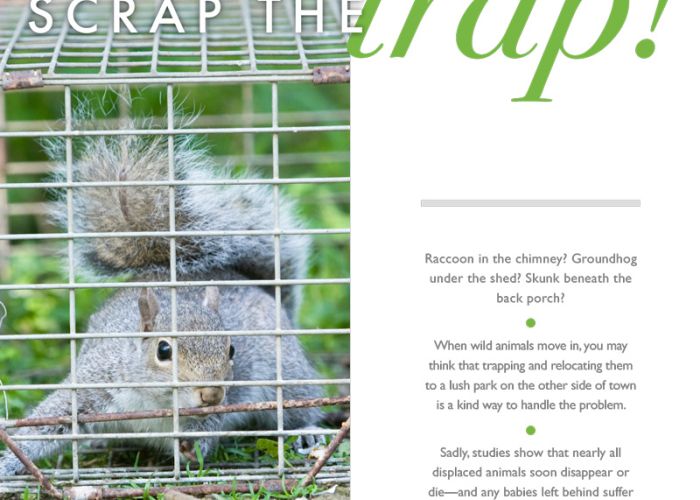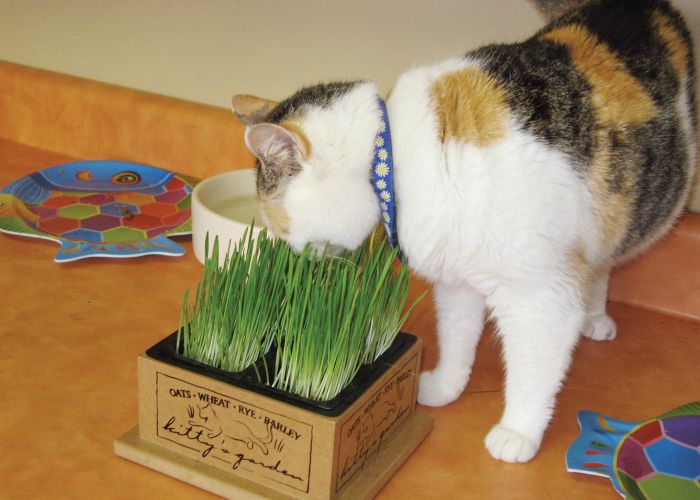Fact sheet: Puppy teething
What to do about your puppy’s chewing and nipping
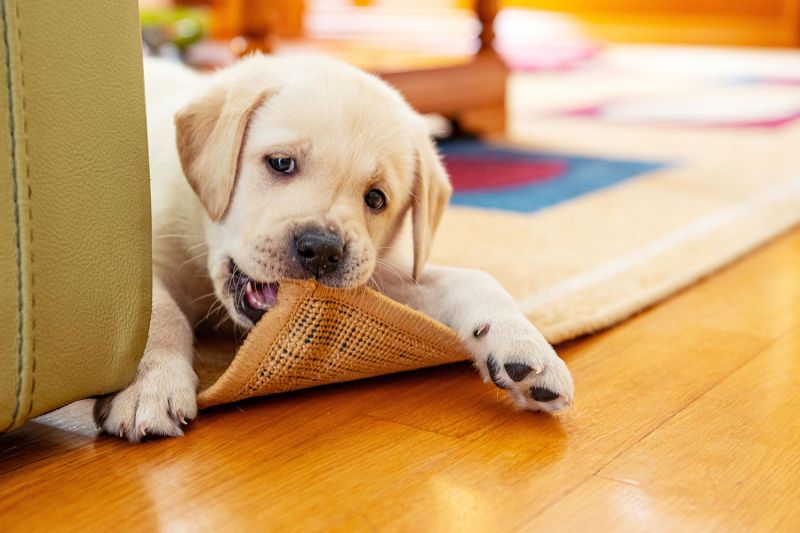
Puppies are curious. They use their mouths to explore the world and objects around them, which may include your shoes, your couch or your hands. Your puppy is also likely teething, and chewing can make their sore gums feel better.
To protect your puppy’s health and your belongings, you should teach your pup to chew only on safe and appropriate items. Here are some tips to get you started.
Give your puppy the right toys. Buy toys designed for teething puppies, or try freezing a rubber toy (the cold rubber will soothe their gums). Don’t confuse your pup by offering shoes as toys and then expecting them to distinguish between their shoe and yours. Because no toy is 100% safe, supervise your puppy so they don’t chew and swallow any pieces, particularly when offering a new type of toy.
Help your puppy make the right decisions. It can take time for a puppy to learn what they’re allowed to chew. Keep clothing, shoes, trash and other tempting objects out of reach. If your puppy starts chewing on furniture, try spraying your furniture with a taste deterrent (such as Bitter Apple).
Train your puppy to trade. Snatching items from a pup’s mouth can cause them to develop guarding behaviors or run from you when you need to get an item back. If you catch your pup chewing on something they shouldn’t, trade them for a toy. If they won’t give up the item, offer a treat instead. Use the word “give” as their cue to release the object in exchange for the treat. In time, you also can teach your pup the “leave it” command to prevent them from grabbing something in the first place.
Puppies grow a set of baby teeth when they’re just a few weeks old. At around 12 weeks, their baby teeth will begin to fall out and their permanent teeth will start to come in. The teething period typically lasts until a pup is about 6 months old.
Tire out your puppy. A bored puppy is more likely to get into mischief, so provide plenty of mental and physical exercise. Playdates with other friendly pups, puzzle toys and exploratory walks with time for sniffing can direct a puppy’s energy in positive ways.
Teach your puppy not to bite. Puppies become adults, and they need to know that using their mouths on people isn’t OK. Don’t use your hands or feet as playthings, and don’t let others do it either. If your puppy chews or nips at your hands or any other body part, offer a toy instead. If they persist, give them a time-out. Use baby gates to confine them to one area and leave the room.
Stay positive. Yelling or physical punishment will teach your pup to become fearful of you and other people. Always use positive training methods (in which you ignore or replace negative behaviors and reward the behaviors you want to see). Your puppy will learn faster and build a stronger bond with you.
Document
